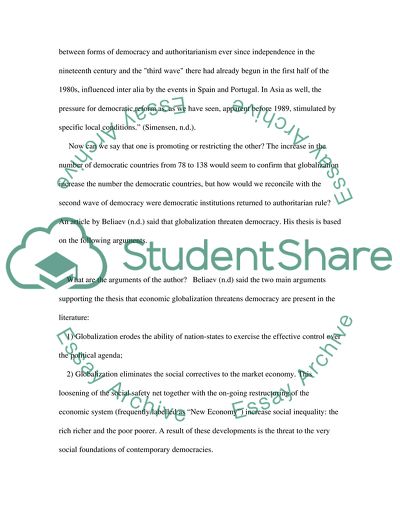Cite this document
(“What Was the Connection Between Globalisation And the 'Third Wave of Essay”, n.d.)
What Was the Connection Between Globalisation And the 'Third Wave of Essay. Retrieved from https://studentshare.org/social-science/1538398-what-was-the-connection-between-globalisation-and-the-third-wave-of-democracy
What Was the Connection Between Globalisation And the 'Third Wave of Essay. Retrieved from https://studentshare.org/social-science/1538398-what-was-the-connection-between-globalisation-and-the-third-wave-of-democracy
(What Was the Connection Between Globalisation And the 'Third Wave of Essay)
What Was the Connection Between Globalisation And the 'Third Wave of Essay. https://studentshare.org/social-science/1538398-what-was-the-connection-between-globalisation-and-the-third-wave-of-democracy.
What Was the Connection Between Globalisation And the 'Third Wave of Essay. https://studentshare.org/social-science/1538398-what-was-the-connection-between-globalisation-and-the-third-wave-of-democracy.
“What Was the Connection Between Globalisation And the 'Third Wave of Essay”, n.d. https://studentshare.org/social-science/1538398-what-was-the-connection-between-globalisation-and-the-third-wave-of-democracy.


